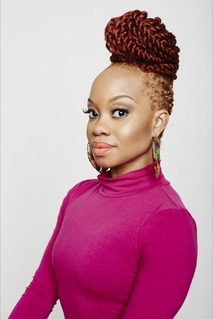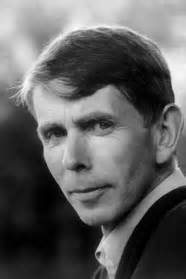A Quote by Ruth Negga
I didn't have that many black people in my life, so I had to sort of search them out. And I didn't grow up in America, but I identified as much with their writing about the black experience as I did with their writing about the human experience.
Related Quotes
There's no reason why you can't say "August Wilson, playwright" even though all of my work, every single play, is about black Americans, about black American culture, about the black experience in America. I write about the black experience of men, or I write about black folks. That's who I am. In the same manner that Chekhov wrote about the Russians, I write about blacks. I couldn't do anything else. I wouldn't do anything else.
I think it's important for people to understand that dance, movement, choreography is about an experience and entertainment but it's also about perception and a lens. So when we're talking about a Black female's experience through a Black female's lens, that's going to be totally different from a Black female's perspective through a Black male's lens.
I grew up when one of America's greatest black playwrights, August Wilson, was writing about life in Pittsburgh, but I never saw myself in any of his straight-male plays. And then I see 'Angels,' which was so honest and painful, and it had this black drag queen in it, Belize, with a big heart. I finally had a character to relate to.
I think a lot about race and the burdens of representation. There's an idea that because I'm writing a book set around the time of the Great Migration, and happen to be black, I'm trying to write a definitive account of the Great Migration, the so-called "black experience." That's not what I'm doing, and it can be frustrating.
I grew up in the midst of poverty but every black kid that I knew could read and write. We have to talk about the fact that we cannot educate for critical consciousness if we have a group of people who cannot access Fanon, Cabral, or Audre Lorde because they can’t read or write. How did Malcolm X radicalize his consciousness? He did it through books. If you deprive working-class and poor black people of access to reading and writing, you are making them that much farther removed from being a class that can engage in revolutionary resistance.
One of the facets of growing up the way I did, I never had the experience of being solely in the black community. Even my family, my mother is what they call Creole, so she's part French, part black, and grew up in Louisiana. It's a very specific kind of blackness that is different than what is traditionally thought of as the black community and black culture. So, I never felt a part of whatever that was.
Race doesn't mean what it used to in America anymore. It just doesn't. Obama's black, but he's not black the way people used to define that. Is black your experience or the color of your skin? My experience is as a Mexican immigrant, more so than someone like George Lopez. He's from California. But he'll be treated as an immigrant. I am an outsider. My abuelita, my grandmother, didn't speak English. My whole family on my dad's side is in Mexico. I won't ever be called that or treated that way, but it was my experience.
You're supposed to be writing from experience - experience with people, with reading, seeing some homeless guy on the street and making up some story of him in your head. If you never see any of that or have those conversations or even sleep enough to have vivid dreams, then what are you writing about?
































